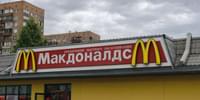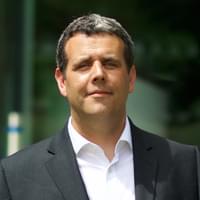
Has Russia’s war changed business decision making in the West for decades to come?
After many multinational corporations removed their presence in Russia following Putin's invasion of Ukraine, Dr Andrew White examines what kind of long-term impact there may be on global business.
In the 21st century, Western businesses have faced ever more complicated geopolitics. We have increasingly questioned our reliance on consumer goods from China, for example, and fossil fuel from Russia. But these geopolitical issues have multiplied following Russia's brutal invasion of Ukraine.
Has the simplistic model for business success of years gone by – making a profit and making the shareholders happy – changed forever? Now, the future of business is also about the benefit of the wider world, and as leaders like Vladimir Putin make that world more unstable, firms have to be agile in reacting to fast-changing trading conditions.
We have seen that with the multitude of major corporations – from McDonald's to Jaguar Land Rover, Starbucks to L'Oréal – pulling out of Russia in response to Putin's war. The interesting thing to remember here is that no one was forcing these companies to stop trading in Russia. It was never a government instruction or sanction. It was a decision that came from these companies' leaders.
But as governments have been imposing various sanctions on Russia, these companies have seen a geopolitical climate where they feel it's no longer appropriate to trade in Russia. President Volodymyr Zelenskyy himself, the symbol of Ukraine's fierce resistance to Putin, said Western businesses must not profit from Russia "because it is flooded with our blood".
Put simply, these firms don't want to trade in Putin's Russia because it will damage their brand, and more deeply, not align with the values of the leaders, employees, shareholders and customers.
In many ways, we're seeing a new Iron Curtain raised back up, but for different reasons than the one we saw in the 20th century. Politically, international bodies like NATO and the EU appear to have been energised by their opposition to Putin. Does this mean that NATO now has a purpose it hasn't had for the past 20 years, while the EU has realised it has bigger fish to fry than the Brexit fallout and other internal differences? With their backs against the wall, the American/EU alliance feels like it has solidified in the face of Russia. Only time will tell how long this will last.
But that won't be universal. China, for instance, is unlikely to turn against its major ally. And what of countries like South Africa, which has shown implicit support by refusing to condemn Russia's aggression, due to trade that is critical to its suffering economy and addressing its high unemployment rate?
If the war escalates further, and Putin's abuses of power become even more grave, how do Western countries and businesses respond to his allies?
Further questions include the reconfiguring of supply chains. We've seen massively global supply chains in which a module of a car can be constructed from parts as far afield as Europe, South America and Asia – simply because logistics costs were so low and there was so much basic stability.
Are we going to see more redundancy built into supply chains, and them become increasingly local, because it's just too risky to have global supply chains where war and sanctions are threatening the flow of goods, and where the shipping costs have gone up so much?
We are also already seeing a big shift in terms of energy. In the short-term, to fill the Russia-sized gap caused by government sanctions, it will increase Europe's dependence on oil and gas. We may see oil fields reopen in the North Sea, for example.
But in the long-term, will the rise in prices accelerate the transition to renewables and the supply of local energy? This is actually an opportunity for Western firms because more trade is going to come back on shore in Europe and North America.
Nonetheless, all the geopolitical pressures on the West, exacerbated by Russia's war, highlight the long and unimpeded run of globalisation we've been on. It may not be over but it's certainly going through a high level of disruptive change.
In a sense, it also shows how democracy has become disconnected from capitalism – where it is arguable that historically the two things evolved together. The question, in the years going forward, will be whether Putin's actions have reintroduced those boundaries and created a new trajectory of change?















